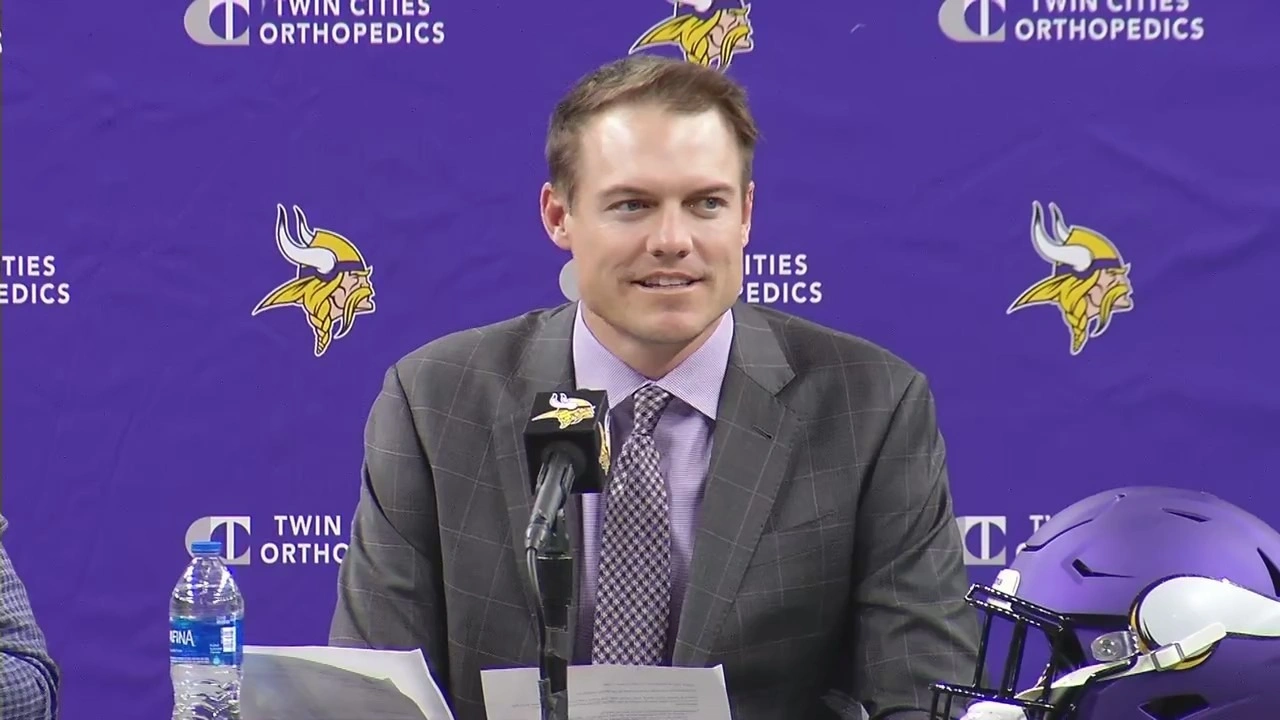It’s time for the Vikings to part ways with their current quarterback, number 8, and revamp the quarterback position. While Kirk Cousins’ torn Achilles tendon at the age of 35 is a factor in this decision, the main reason is that the team isn’t poised for success with him.
When Cousins got injured in Week 8, it exposed numerous flaws in the Vikings’ roster. The running game couldn’t compensate for the drop in passing yardage, the offensive line is incomplete, the secondary still needs improvement, and the pass rush lacked consistency. It’s worth noting that the Vikings started the season 1-4 even with a healthy Cousins.
General Manager Kwesi Adofo-Mensah’s offseason priorities include trying to re-sign Danielle Hunter and potentially securing Justin Jefferson, one of the best non-quarterbacks in the game, to a long-term deal.
Allow Cousins’ contract to expire in March, seize the opportunity presented by a strong quarterback class, draft a promising rookie, and focus on bolstering other areas of the roster. Begin by securing Hunter and Jefferson.
The prospective future Vikings quarterback may have played in the college football championship on Monday. Michael Penix Jr. from Washington possesses a powerful left arm and improvisational skills, despite a less-than-optimal performance on Monday. Michigan’s J.J. McCarthy, although not posting impressive numbers, showcases a strong arm, mobility, good decision-making, and the ability to throw into tight windows.
Adofo-Mensah and Vikings scouts witnessed McCarthy’s capabilities on October 7 when the Wolverines dominated the Gophers. Considering the ongoing NFL trend to draft quarterbacks early, McCarthy is likely to be hyped into the first round by the April 25 draft. Penix, too, could be a suitable fit for the Vikings, who hold the No. 11 pick. Providing coach Kevin O’Connell with a young quarterback, boasting more potential than Jaren Hall, would allow for development and progress.
The Vikings’ impressive 13-4 run in 2022 was an unusual occurrence, marked by a historic feat of winning 11 one-score games. However, relying on such historical success is not a sustainable strategy. Inserting Cousins into the 2024 equation does not ensure a repeat of the 2022 performance. The key to another 13-win season lies in enhancing the overall talent of the roster, and committing $35-40 million to Cousins for another season or more could hinder that progress.
General Manager Adofo-Mensah faces a critical offseason, having experienced two lackluster drafts and a less-than-fruitful venture into free agency last year. While Jordan Addison was a solid pick, their 2022 first-rounder, Lewis Cine, has seen limited playing time, and Marcus Davenport spent a significant portion of the season sidelined. Adofo-Mensah’s upcoming draft pick is an opportunity to reshape perceptions of his talent evaluation skills.
Given the extensive work ahead, retaining Cousins doesn’t align with the team’s goals. While reaching the postseason with Cousins is plausible, the Vikings lack the depth and talent needed for a successful playoff run. To compete at the level of teams like the 49ers or the Cowboys in the NFC, significant roster improvements are necessary.
Although signing Cousins in 2018 wasn’t the grand slam the Vikings hoped for, his career has seen a positive evolution from criticism to respect and admiration. However, the time has come for the Vikings to transition to a new quarterback and chart a course for sustained success. Cutting ties with Kirk Cousins is the necessary step, and it’s also time to retire phrases like “competitive rebuild,” which, like the “triangle of authority,” have proven unsuccessful in describing the team’s trajectory.
